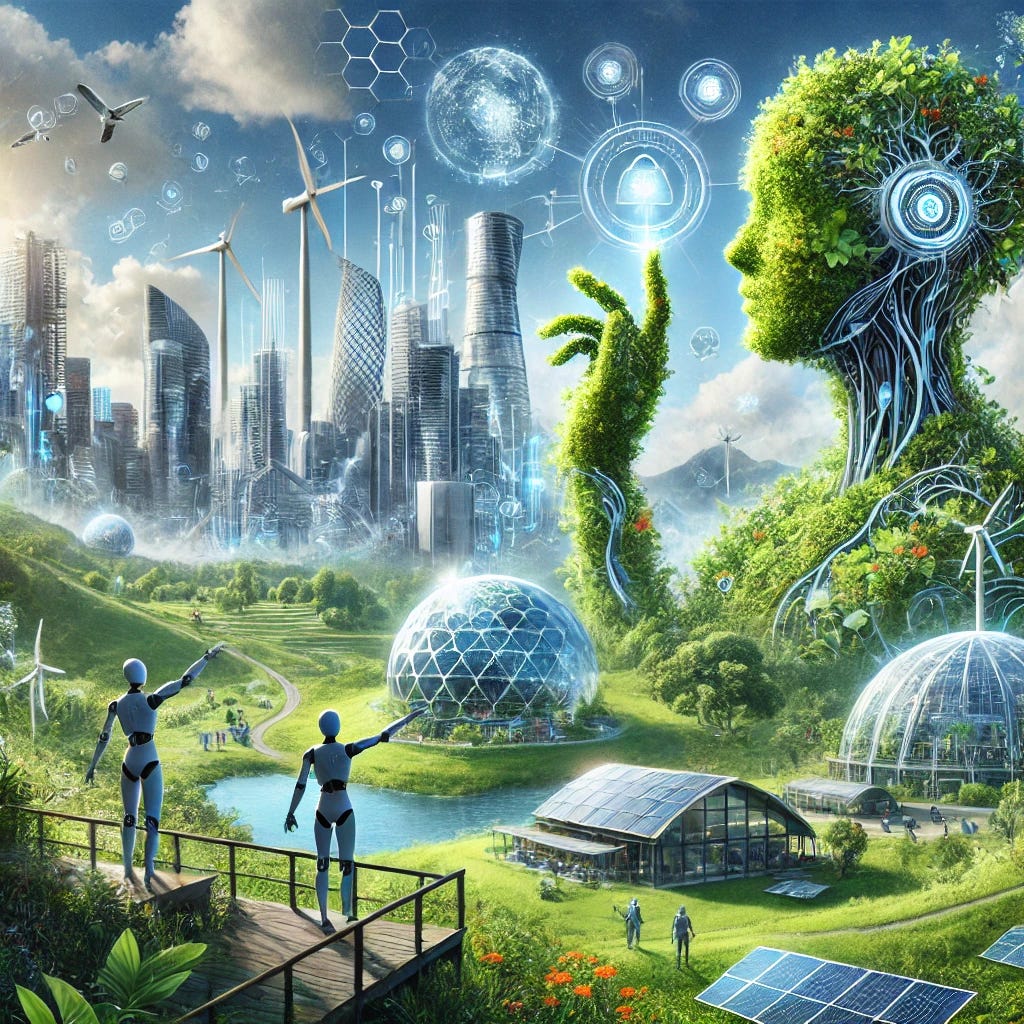The Singularity and Human Nature vs. Nature’s Logic
Can human nature, with its complexities, emotions, and flaws, sustain a functional society in the singularity era?
Can human nature, with its complexities, emotions, and flaws, sustain a functional society in the singularity era, or does nature's inherent logic and simplicity provide a better model?
Let’s delve into this.
Human Nature vs. Nature’s Logic
Human Nature: Strengths and Weaknesses
Strengths: Creativity, innovation, and adaptability are hallmarks of human nature. These traits have allowed humanity to overcome challenges and thrive in diverse environments.
Weaknesses: Self-interest, greed, short-term thinking, and susceptibility to manipulation often hinder collective progress. These traits can amplify inequalities, conflicts, and inefficiencies in governance and resource management.
Nature’s Logic: Efficiency and Balance
Strengths: Nature operates on principles of balance, sustainability, and efficiency. Ecosystems self-regulate, maintaining harmony through interdependence and feedback loops.
Weaknesses: Nature lacks intentionality. Its processes are neutral and often indifferent to individual well-being, favoring survival at the macro level, sometimes at the expense of micro-level entities.
The Singularity: A Turning Point
The singularity, characterized by advanced AI, automation, and near-infinite computational power, introduces new dynamics:
Abundance Without Purpose: Automation could eliminate labor and create material abundance, but without purpose, humans risk losing their sense of identity and motivation.
Exponential Power: AI and quantum technologies could surpass human decision-making capabilities, potentially sidelining human governance altogether.
Ethical Complexity: Decisions about life, death, equity, and sustainability might be better suited for algorithms than emotionally driven humans, but entrusting such decisions to machines raises profound moral questions.
Why Nature Seems More Logical
Unbiased Decision-Making: Nature operates without favoritism. Its systems optimize for survival and balance, avoiding the pitfalls of human bias and selfishness.
Sustainability: Nature’s cycles—like carbon, water, and energy—are inherently sustainable. Human systems often exploit resources unsustainably, creating long-term instability.
Adaptability Without Overreach: While nature adapts to challenges, it rarely overcompensates. Humans, however, often over-engineer or overexploit solutions, leading to unintended consequences.
Reconciling Human Nature with Nature’s Logic
Rather than choosing between human nature and nature's logic, the singularity era might benefit from a synthesis of the two:
Learning from Nature:
Incorporate biomimicry into systems design, creating processes that emulate nature's efficiency and sustainability.
Emphasize decentralized, self-regulating models inspired by ecosystems.
Harnessing Human Creativity:
Retain human oversight in areas requiring creativity, ethics, and innovation, areas where human nature excels over nature's deterministic processes.
AI as a Mediator:
AI could act as an impartial arbiter, blending human ideals with natural principles to create systems that are fair, efficient, and sustainable.
Building an Effective Society
To avoid an ineffective society in the singularity, humanity must adapt its systems and behaviors to align with the logic of nature:
Rethinking Governance:
Replace rigid hierarchies with dynamic, networked systems that mimic nature’s interdependence.
Introduce AI-guided decision-making to counteract human biases and inefficiencies.
Revaluing Purpose:
As automation reduces the need for human labor, shift focus to intellectual, artistic, and communal pursuits.
Create systems that reward collaboration and collective success over individual gain.
Prioritizing Sustainability:
Develop economies and technologies that operate within the planet’s ecological limits.
Focus on regenerative practices that restore and enhance ecosystems.
The Balance Between Humanity and Nature
The singularity is not a choice between human nature and nature’s logic—it’s an opportunity to merge the best of both. By integrating the creativity, emotion, and ethical reasoning of humans with the efficiency, balance, and sustainability of natural systems, we can create a society that thrives in harmony with the singularity’s challenges and opportunities.
Human nature may seem like a liability in its current form, but with the right guidance and systems, it can evolve to complement the logic of nature, ensuring an effective and enlightened society.



